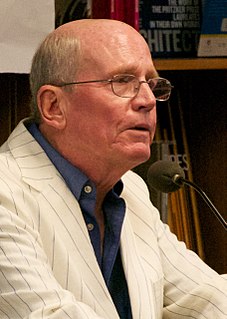A Quote by Jonathan Yardley
One of my pet theories is that readers have built-in BS detectors that enable them to recognize insincerity in writers. David [Halberstam] was sincerity to the core. He believed in what he wrote, and that conviction conveyed itself to readers.
Related Quotes
I have a total responsibility to the reader. The reader has to trust me and never feel betrayed. There's a double standard between writers and readers. Readers can be unfaithful to writers anytime they like, but writers must never ever be unfaithful to the readers. And it's appropriate, because the writer is getting paid and the reader isn't.
I do open endings on purpose. I expect a lot from my readers. I want them to do much of the work, because I believe that the story is built by the reader, not by the writer. I like having an open ending to a standalone fantasy, because it allows a continuing story to be written in the hearts of the readers.
Books are just dead words on paper and it is the readers who bring the stories alive. Previously, writers wrote a book and sent it out into the world. A couple of months after publication letters from readers might arrive. And, leaving aside the professional reviews, it is really the reader's opinions that the writer needs. They vote for a book - and a writer - with their hard earned cash every time they go into a bookstore (or online - that's my age showing!) and buy a book.



































